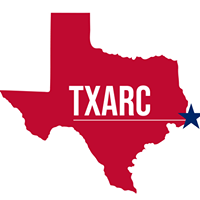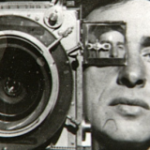AGENCY PLAYS ROLE IN REUNIONS
SERVICE HELPS ILL ADOPTEES FIND FAMILY, GET MEDICAL INFORMATION
Published: Sunday, March 9, 1997
Section: Local
Page: 1B
BY LESLIE KATZ, Special to the Mercury News
When adoptee Phoenix Aguila was diagnosed as HIV-positive three years ago, he urgently needed to know who his parents were. Added to his lingering questions — where did his looks come from? his outspokenness? — were pressing medical questions.
”I wanted to know what I’m prone to,” said Aguila, 36, of San Francisco.
Last month, with the help of a new service that helps terminally ill adoptees locate their birth parents, he met his father, East Bay resident Robert Flottmann, for the first time since being put up for adoption as a toddler.
”Overwhelmed would be closest to how it felt,” Aguila says of an emotional eight-hour reunion. ”I still haven’t been able to process my feelings.”
Aguila found his birth father through Terminal Illness Emergency Searches, a free service of the national adoptee-advocacy group Bastard Nation that aims to help ill adoptees access potentially crucial medical information and answer long-held questions of identity.
Founded last year, Bastard Nation’s primary goal is the unsealing of all adoption records, employing in-your-face tactics to bring attention to its stance that closed records violate adoptees’ right to self-knowledge.
Bastard Nation members, for example, plan a ”positive picket” of the upcoming Academy Awards ceremony. They will spotlight the movie ”Secrets and Lies,” the story of an adoptee in England who locates her birth mother through open adoption records.
In the United States, only Kansas and Alaska have open adoption record policies; those states allow adoptees access to original birth certificates and court records when they turn 18. Tennessee passed a law to unseal adoption records last year, but the statute is being challenged in court.
California and most other states allow adoptees to seek their birth parents only through intermediaries or mutually consensual registries in which estranged family members list their names. Arguing that such registries are far from reliable, a growing and vocal adoption reform movement maintains that open records are essential to adoptees in search of their roots.
”It seems unforgivable to deny this category of human beings the right to their history,” says Gail Steinberg, an adoptive mother and co-director of Pact — An Adoption Alliance, a San Francisco agency that specializes in finding homes for minority children. Adoptees are ”the only group of people who don’t have a right to know their genetic base.”
Bastard Nation is trying to bring that base to ailing adoptees who need it before it’s too late.
”Until records are opened, TIES is committed to helping those in dire need who otherwise wouldn’t be able to afford searches or don’t have the time,” says Deb Schwarz, the group’s program director.
Schwarz, an adoptee who lives in San Francisco, will not say exactly how the network of TIES searchers find lost birth parents because ”we obviously don’t want those avenues shut down.” All of the searches, including Aguila’s, have involved legal methods, she says.
”We use public records, the Internet a lot, a lot of investigative-type work,” she says.
Schwarz’s search for her birth relatives has yielded vital medical information. Not only does her birth mother have breast cancer, so did her mother’s mother. And her birth father’s only sister died of breast cancer at age 36.
”Needless to say, I need to know that,” says the 36-year-old Schwarz, who recently had her first mammogram.
Opponents of open adoption records — including the Christian Coalition, some state bar associations and an adoption agency lobbying organization called National Council For Adoption — argue that birth parents were guaranteed confidentiality when they gave their babies up; revealing parents’ identity violates their right to privacy.
”Many birth parents, even though they never forget that their child is out there, want to go on with their lives,” says Aaron Britvan, an adoptive parent and co-chair of the New York State Bar Association’s Adoption Committee.
Britvan believes that adoptees should be given as much ”non-identifying” information as possible — medical history, for example, as well as details on ethnic and educational background.
In another argument against open adoption records, anti-abortion activists say the practice will encourage women to end their pregnancies rather than give birth and risk being sought later.
Robert Flottmann, who lives in Contra Costa County, respects the arguments against open adoption records, but they do not apply to him. He says he didn’t want to surrender his three children in 1963 when the family lived in Missouri, a state with sealed adoption records, but that family crises left him no choice.
In February, as he spoke to his adult son for the first time in years, ”I was so happy, I cried,” says the disabled 57-year-old printer and cab driver. ”In my heart, I knew one day this would happen.”
Flottmann shares Aguila’s hope that TIES will yield information on Flottmann’s estranged first wife and her two daughters. In the meantime, he looks forward to establishing a relationship with his son. Since their reunion, they have spoken by phone and met for brunch at a San Francisco cafe.
Still, Flottmann’s anticipation is subdued by news of Aguila’s HIV status. ”The thought comes to mind that I’ve just got him back,” Flottmann says. ”Am I going to lose him right away? It frightens me quite a bit.”
With the advent of new, promising AIDS drugs, Aguila views his future optimistically. But he expects that when he dies, the cause will be AIDS-related.
IF YOU’RE INTERESTED Bastard Nation’s site on the World Wide Web is http://bastards.org
Copyright 1997, The San Jose Mercury News. Unauthorized reproduction prohibited.


 New York Adoptee Rights Coalition
New York Adoptee Rights Coalition











